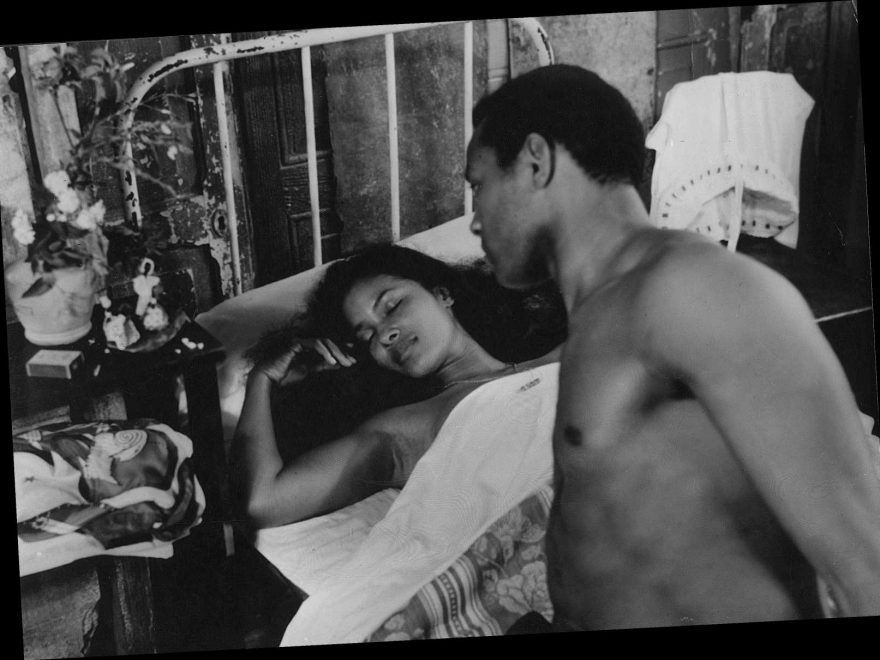With readers turning to their home viewing options more than ever, this daily feature provides one new movie each day worth checking out on a major streaming platform.
To fill the void left by the absence of this year’s Cannes Film Festival, for the next two weeks, this column will be dedicated to films that premiered at the festival over the course of seven decades.
Frenchman Marcel Camus’ 1959 work of audiovisual splendor, “Black Orpheus,” sets the Greek myth of Orpheus and Eurydice in the slums of Rio de Janeiro during Carnaval. Based on the play, “Orfeu da Conceição,” by the Brazilian writer Vinicius de Moraes, the film, now streaming on the Criterion Channel and Kanopy, was quite literally a coming-out party for Brazil, albeit as a European-American curiosity. It was the first internationally acclaimed film to take place entirely in a favela, with an all-black Brazilian cast, and is most notable for a soundtrack that is credited with single-handedly introducing the world to the nascent bossa nova (which means literally “new trend” or “new wave”) genre of music, the chic rhythms of which soon entered the global jazz canon.
In this version of the Greek legend, handsome trolleybus conductor Orfeu (Breno Mello) uses his musical charms to seduce the beautiful Eurydice (Marpessa Dawn), who comes to the city to escape a mysterious man — possibly a physical manifestation of Death — who is pursuing her. Orfeu does this despite being engaged to the brazen Mira (Lourdes de Oliveira). Romantic intrigue soon gives way to an altogether darker tone, as Orfeu finds himself unable to protect his new love from the unwelcome attentions of the dark stranger.
Popular on IndieWire
There are many delightful and subtle touches that parallel the original myth, which may be as old as time, but the film made it remarkably fresh to contemporary audiences.
“Black Orpheus” captures the jubilation of Carnaval in Rio, as well as the dance sequences that showcase the samba skills of the actors, who were largely non-professional. It’s a rich flurry of color and movement captured by Jean Bourgoin’s gorgeous cinematography — a joyful and exuberant affair, for which it was criticized by Brazilians who felt that Camus’ scintillating rendering of favelas glossed over the social and cultural injustices endured by its black characters. For them, it was ultimately an outsider’s exoticized vision of the country, especially as a new generation of Brazilian filmmakers were converging around the more politically-leaning Cinema Novo movement that was more interested in depicting the harsh realities of Brazilian life.
So it’s a film that worked much better outside Brazil, for foreigners who didn’t know the country, or who only knew it superficially.
Still, “Black Orpheus” was an international hit, viewed as a fresh, colorful, atmospheric, and infectious take on an old tale. It was well rewarded, winning the Palme D’Or at Cannes, the Best Foreign Language Film Academy Award and the Golden Globe for Best Foreign Film — the first film with an all-black cast to earn each of these accomplishments.
But what “Black Orpheus” ultimately became renowned for is its timelessly appealing soundtrack (inspiration for a subsequent generation of jazz artists) that continues to cast a spell.
Featuring the music of two of Brazil’s top composers, Antonio Carlos Jobim and Luiz Bonfa, with vocals by Agostinho dos Santos, the album is a bossa nova and samba classic, with tracks like “A Felicidade,” “O Nossa Amor,” and “Samba of Orpheus” drawing much attention at the time of the film’s release.
Though bossa nova had been the bedrock of Latin American music for years, prior to the release of “Black Orpheus,” the rest of the world had never really heard the sound before. The film reshaped the international music scene and its composers became global stars. And despite what is a tragic tale, the bossa nova and samba sounds of Bonfa and Jobim are wonderfully uplifting, and are arguably responsible for the film’s worldwide success.
Music lovers will not only be enchanted by the pulsating beat of the music, they will be especially mesmerized by the beautiful and touching melody of the film’s main theme song, “Manha de Carnival” (“Morning of Carnival”), which appears on the soundtrack in three different takes – as a male vocal, a guitar instrumental, and a female vocal. If any musical arrangement could bring the gods to tears, certainly this would be it.
More than just showcasing bossa nova and samba, “Black Orpheus” brought this music to life. From the very opening title scene, where favela-dwellers barge past an ancient sculpture of Orpheus and Eurydice, to the climactic carnival procession, music practically permeates every single moment of the film. Even the trolley cars seem to be moving to their own rhythm.
And despite the film’s tragic ending, retained from the original myth, it all still ends on a happy note, with three children singing and dancing jubilantly to “Samba de Orfeu.” The thematic message: the legend of Orpheus and Eurydice lives on.
Consequently, the soundtrack was a hit. American jazz musicians like Stan Getz began to cover “Black Orpheus” tracks like “A Felicidade” and “Manha de Carnaval.” And bossa nova began to find audiences in the States, as Getz, along with João Gilberto and his wife, Astrud, released the landmark “Girl from Ipanema” in 1963. A huge hit, it effectively propelled the bossa nova into the stratosphere.
To be sure, the music likely would have become popular without “Black Orpheus.” But it is the film that brings the music, organized into one of the greatest soundtracks ever, alive. None of these musical delights would have been possible without the intoxicating whirl of color and movement that holds them all together. More than 60 years later, it still explodes on the screen with the same flair.
“Black Orpheus” is available to stream on The Criterion Channel, as well as Kanopy.
Source: Read Full Article
